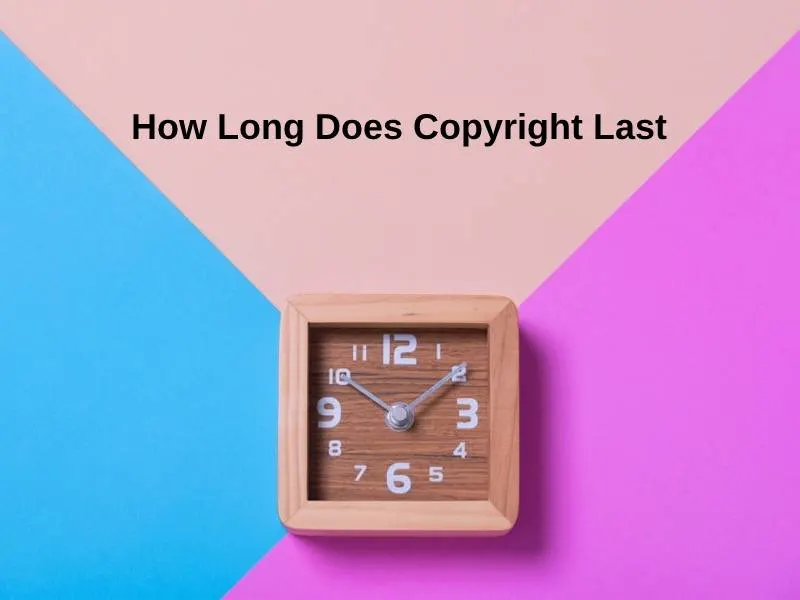Exact Answer: Life + 50/70 Years
The right to copy and publish a work is recognized as copyright. The phrases “copy” and “publish” have a wide range of meanings. They include electronic copies, translations, the production of a television program based on the book, and the publication of the work on the Internet.
If a work is literary or artistic, it is protected by copyright. Almost all results of creative and unique endeavors fall under this umbrella term. Copyright merely protects the way an idea is expressed, not the concept itself. If there was creative work involved in gathering the information, the collection might be copyrighted.

How Long Does Copyright Last?
Several nations give distinct protection for “databases,” which are compilations of information, but this protection is not considered copyright. When a work is created, it is automatically protected by copyright. Registration with a copyright office may provide extra benefits in some countries, such as the opportunity to sue or obtain more money in damages. When a work’s copyright period expires, it enters the public domain.
| Life + Years | Countries |
| Life + 50 Years | Canada, Bhutan, China, Iran, Iraq, Egypt, Afghanistan, Malaysia, Nepal, Pakistan, South Africa, Syria, Thailand, UAE, Zimbabwe, Zambia, and 77 others |
| Life + 70 Years | Australia, Belgium, Denmark, EU, France, Finland, Germany, Iceland, Japan, Israel, Korea, Netherlands, Norway, Russia, Spain, Singapore, Sri Lanka, Switzerland, Ukraine, United Kingdom, United States of America, Vatican City, and 51 more |
| Life + 60 Years | Bangladesh, Venezuela, and India |
| Life + 80 Years | Colombia, and Equatorial Guinea |
| Life + 95 Years | Jamaica |
Countries are included, together with their various copyright durations and the length of traditional copyright in years. Non-country organizations such as the European Union, Berne Convention, and Universal Copyright Convention establish mandatory periods on its member nations or subscribers. A copyright duration of at least 50 years after death is essential, despite the fact that it is not stated in the Agreement on Trade-Related Aspects of Intellectual Property Rights (TRIPS).
Why Does Copyright Last That Long?
Copyright protection lasts throughout the author’s lifespan plus at least 50 years after their demise, according to the Berne Convention. The minimum time required for various sorts of work has been reduced. For example, the minimum duration for applied art is 25 years. Films must be created to last at least 50 years. The majority of the countries have selected a longer duration of protection, as allowed.
Under the Convention, the length of copyright is decided by the author’s life expectancy. According to Berne, copyright lasts for at least 50 years after the author’s death. For example, the European Union and the US have extended this to 70 years after the author’s death.
United States of America
- The Berne Convention went into force in the United States in 1989. Since that day, U.S. authors have had automatic copyright on their works, and registration is no longer necessary. Many copyright texts in the United States, on the other hand, have not been updated and continue to use the old registration concept.
- In the United States, copyright registration is still possible. Registration is still necessary to file a lawsuit against an infringer. In addition to real losses, registration provides the possibility of statutory damages from the infringement.
European Union
- The Berne Convention is signed by all member nations of the European Union. Furthermore, in the European Union, copyright is governed by European Directives. Following a regulation, member states of the European Union have expanded the author’s term to life and 70 years after death.
- Even though this was not the initial goal, the extension is retroactive. Works that had been in the public domain after the author had been deceased for 50 years were given a further 20 years of protection.
The Copyright Office is in charge of registration. You complete a form, pay a fee, and provide a sample of the copyrighted work—some pages from the novel, lines of computer code, or an image of your sculpture. The first author would not have had to prove the second author ever viewed the tale if he had registered it.
Conclusion
You do not need to be concerned about copyright renewal regardless of who registers the copyright. Copyright holders had to make an application and pay a fee at the midway point of their copyright’s term in the previous century. The copyright expired due to a failure to file a renewal. There is no need to renew copyright because the laws have changed. Instead, in an opt-out system, authors might choose to disclose their copyright to the public.
References
- https://heinonline.org/HOL/LandingPage?handle=hein.journals/jocoso50&div=7&id=&page=
- https://books.google.co.in/books?hl=en&lr=&id=a-yu2-JUQNAC&oi=fnd&pg=PT31&dq=how+long+does+copyright+last&ots=5WP-e_NshD&sig=u6XRdAEsv9yn8XZcXYu-CZ0xdXU&redir_esc=y#v=onepage&q=how%20long%20does%20copyright%20last&f=false